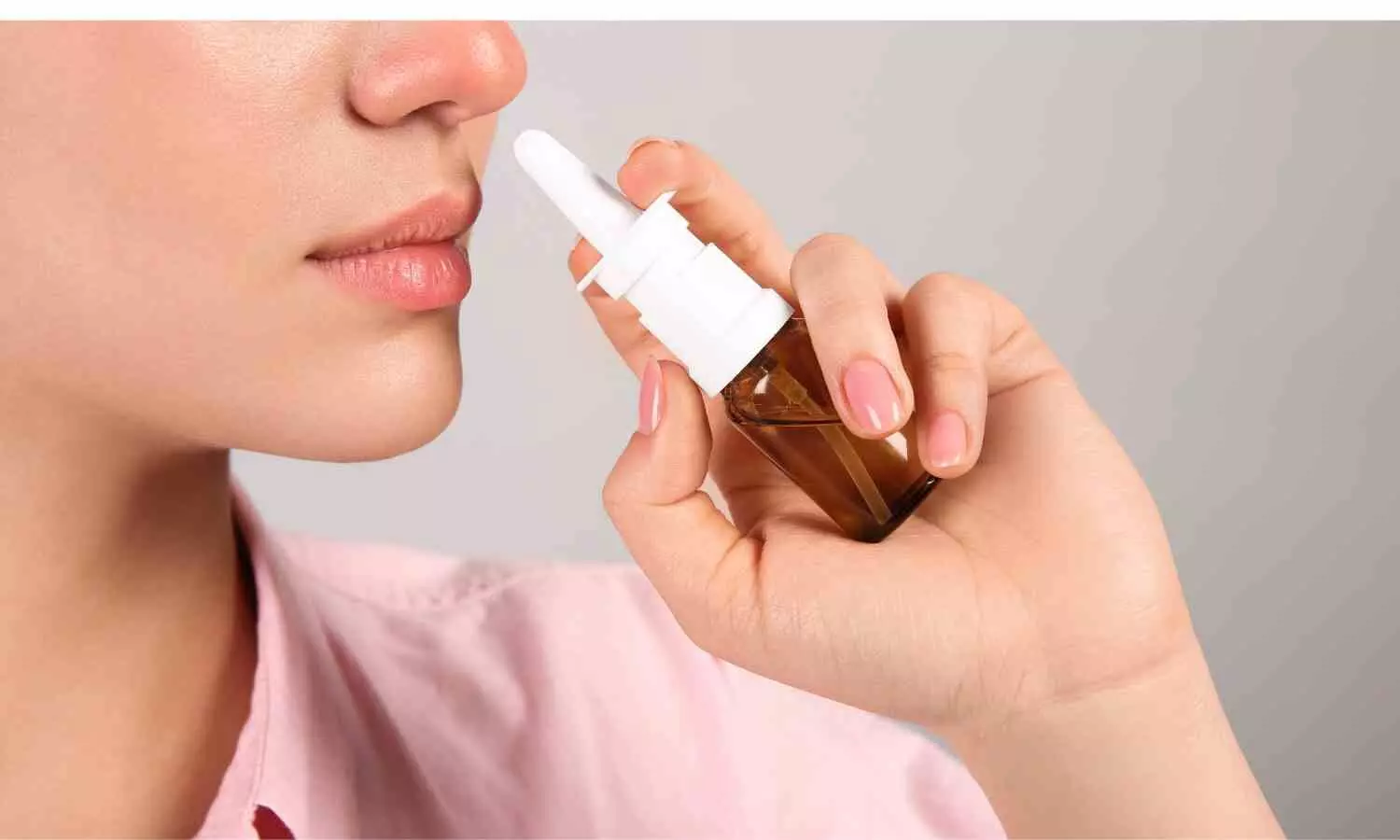By Dr. Kamal Kant Kohli,Jacinthlyn Sylvia
Copyright medicaldialogues

A new study published in the journal of Clinical Infectious Diseases showed that daily use of interferon-alpha (IFN-α) nasal spray significantly lowered the risk of COVID-19 infection in adults with solid-tumor or blood cancers compared to a saline placebo. Previous research has demonstrated the role of IFN pathways in COVID-19 protection, with nasal IFN-α being useful in preventing influenza and rhinovirus, 2 respiratory viruses that are acquired in the community. This trial assessed whether giving adult cancer patients a daily nasal spray of IFN-α would lower their risk of contracting COVID-19 or other community-acquired respiratory viral infections. The participants in this study were randomized 1:1 to receive either a normal saline placebo or a daily 40 000 IU IFN-α nasal spray. To test for SARS-CoV-2, influenza A/B, parainfluenza, adenovirus, respiratory syncytial virus, picornavirus, human metapneumovirus, seasonal coronavirus, and/or SARS-CoV-2 rapid antigen, participants who experienced influenza-like symptoms self-collected nose swabs. Incidence of COVID-19 and/or other respiratory viruses within 90 days of randomization were co-primary outcomes. A total of 433 individuals were randomly assigned to either IFN-α (n = 217) or a placebo (n = 216). When compared to the placebo group, the IFN-α group had a lower incidence of COVID-19 (8.3% vs. 14.4%), suggesting a 40% lower chance of infection (relative risk [RR]:.60; 95% credible interval [CrI]:.33–.97).In both groups, the incidence of other respiratory viral infections was 5.1% (RR: 1.12;.43–2.34). The incidence of COVID-19 was 7.7% in the IFN-α group and 16.0% in the placebo group (RR:.50;.26–.84) in the per-protocol cohort (n = 389), whereas the incidence of other respiratory viruses was 4.6% and 5.7%, respectively.There was no difference by underlying malignancy, but subgroup analysis showed decreased COVID-19 in the IFN-α group for ages <65 years (RR:.48;.20–.92), female sex (RR:.44;.19–.85), and COVID-19 vaccinated (RR:.50;.26–.82). Hospitalization, death, and secondary endpoints of severity did not vary. IFN-α was safe and well tolerated. Overall, prophylactic use of intranasal IFN-α nasal spray was safe and beneficial in lowering the incidence of COVID-19 in adult cancer patients. In addition to immunization and monoclonal antibodies, IFN-α may be a preventative approach against COVID-19.Source:Yong, M. K., Thursky, K., Crane, M., Spelman, T., Mahar, R. K., Simpson, J. A., Scott, A. M., Harrison, S. J., Szer, J., Pellegrini, M., Lingaratnam, S., Pang, K. C., Tennakoon, S., Sim, B. Z., Blyth, E., Gan, H. K., Quach, H., McIntosh, M. P., Page, H., … Slavin, M. (2025). Interferon-α nasal spray prophylaxis reduces COVID-19 in cancer patients: A randomized, double-blinded, placebo-controlled trial. Clinical Infectious Diseases: An Official Publication of the Infectious Diseases Society of America,. https://doi.org/10.1093/cid/ciaf409



